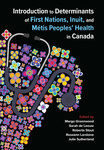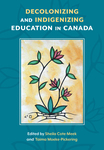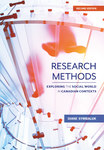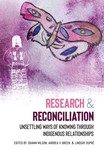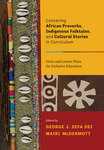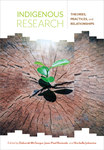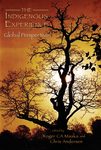We don’t actively support Internet Explorer
It appears that you are using Internet Explorer, which has been discontinued by Microsoft. Support has ended for versions older than 11, and as a result you may face security issues and other problems when using it.
We recommend upgrading to a newer browser such as Firefox, Google Chrome, or Edge for a much better experience across the web.
While this site may work with Explorer, we are not testing and verifying it, so you may run into some trouble or strange looking things.
Indigenous Knowledge Systems and Research Methodologies
Local Solutions and Global Opportunities
Edited by Elizabeth Sumida Huaman, Nathan D. Martin
Overview
Bringing together researchers from geographically, culturally, and linguistically diverse regions, Indigenous Knowledge Systems and Research Methodologies offers guidance and lessons learned from research projects in and with Indigenous communities around the world. This edited volume explores issues of power, representation, participation, and accountability in studies involving Indigenous peoples and draws on contributors’ reflections of their own varied experiences conducting collaborative research in distinct yet related fields. Anchoring the book are several key aims: exploring decolonizing and decolonial methodological paradigms, honouring Indigenous knowledge systems, and growing interdisciplinary collaboration toward Indigenous self-determination.
This collection is a hopeful contribution to Indigenous communities, institutions, scholarship, and practice, highlighting challenges and ideas from Indigenous researchers who are doing the work of moving forward Indigenous research methodologies. Throughout, authors share critical stories regarding what it means to do Indigenous research and to become an Indigenous researcher today. Authors discuss themes essential to study design—including ethics, positionality, data analysis, and dissemination—that reveal how they resist, negotiate, and transform research using multiple epistemologies. Including chapter learning objectives and reflection questions, this text is a vital resource for students and anyone interested in developing a relationship with Indigenous research methods.
FEATURES
- presents proposals and visions for research with Indigenous communities that include both methodological and practical considerations
- draws on the experiences of the co-editors in developing and teaching research methods courses for Indigenous graduate students
- includes features such as chapter learning objectives, questions for critical thought, and key terms
Table of Contents
Foreword: Indigenous Education, Research, and Theory
George J. Sefa Dei (Asakyiri)
Preface
Elizabeth Sumida Huaman with Nathan D. Martin
SECTION I – SETTING THE INDIGENOUS RESEARCH AGENDA: INDIGENOUS KNOWLEDGES AND RESEARCH WORLDVIEWS
Chapter 1 – Indigenous Research: Methodologies of Resilience and Adaptation
Elizabeth Sumida Huaman and Nathan D. Martin (Editors)
Chapter 2 – Finding the Bone Needle through Indigenous Storywork
Jo-ann Archibald Q’um Q’um Xiiem (Stó:lō and St’at’imc First Nations)
Chapter 3 – What Are Your Values? Positioning the Researcher
Porter Swentzell (Santa Clara Pueblo)
SECTION II – RESEARCH FOR OUR EARTH
Chapter 4 – Holographic Epistemology (Indigenous Common Sense): A Nakòna Example
Sweeney Windchief (Fort Peck Assiniboine)
Chapter 5 – Making Sense of Anecdata: Pushing the Edges of Science in Decolonizing Research
Peter Mataira (Māori, Ngāti Porou/Ngāti Kahungunu)
Chapter 6 – “Our Indigenous brothers and sisters are available for us, and we are available for them”: Non-Local Relationships Nurturing Research through an Alaska-Aotearoa Online Student Exchange
Ocean Ripeka Mercier (Ngāti Porou) and Beth Ginondidoy Leonard (Dene’/Athabascan)
SECTION III – RESEARCH FOR WELL-BEING
Chapter 7 – Restoring Ceremony as the Methodological Approach in Indigenous Research: The Indigenous Doula Project
Jaime Cidro (Anishnawbe), Stephanie Sinclair (Anishnawbe), Sarah DeLaronde (Cree), and Leona Star (Cree)
Chapter 8 – Methodological Challenges When Doing Qualitative Mental Health Research among Sámi and Norwegians
Hilde Thørnquist (Pite Sámi)
Chapter 9 – Indigenizing Research Participant Recruitment
Rachell Tenorio (Santo Domingo Pueblo/Kewa Pueblo)
SECTION IV – RESEARCH FOR PEDAGOGY AND LEARNING
Chapter 10 – Credentialing Our Own: Development of an Indigenous Master of Public Health Degree
Maile Chargualaf Flores Taualii (Kanaka Maoli)
Chapter 11 – Qualitative Analysis as Ho‘oku‘iku‘i or Bricolage: Teaching Emancipatory Indigenous Research to Native Hawaiian Graduate Students
Julie Kaomea (Kanaka Maoli)
SECTION V– RESEARCH FOR CONNECTIVITY AND CULTURAL PRACTICES
Chapter 12 – Yeewa (Collaborative Creativity) as Methodology
Trevor Reed (Hopi)
Chapter 13 – The Voice of Thunder: Respect, Reciprocity, and Reconciliation in Indigenous Research
Brian D. McInnes (Ojibwe/Potawatomi)
Chapter 14 – Mink’a Methodologies: Quechua Research in the Peruvian Andes
Elizabeth Sumida Huaman (Wanka/Quechua)
SECTION VI– RESEARCH FOR PEOPLEHOOD AND BELONGING
Chapter 15 – Remaking Chabochi: Research, Positionality, and Power on Rarámuri Lands
Jorge Morales Guerrero (Chabochi/Mestizo Mexicano)
Chapter 16 – Measuring Indigenous Identity with Indigenous Communities
Jameson D. Lopez (Quechan) and Danielle D. Lucero (Isleta Pueblo)
Chapter 17 – Ainu Puri and Research: Seeking “Our Way” for the Future Well-Being of Ainu People in Japan
Nanako Iwasa and Kaori Arai (Ainu)
Epilogue
Elizabeth Sumida Huaman (Lead Editor)
Glossary of Terms
Contributing Author Biographies


